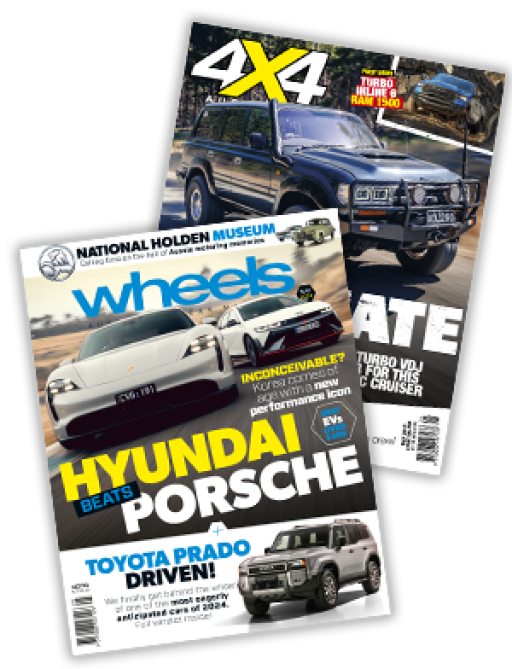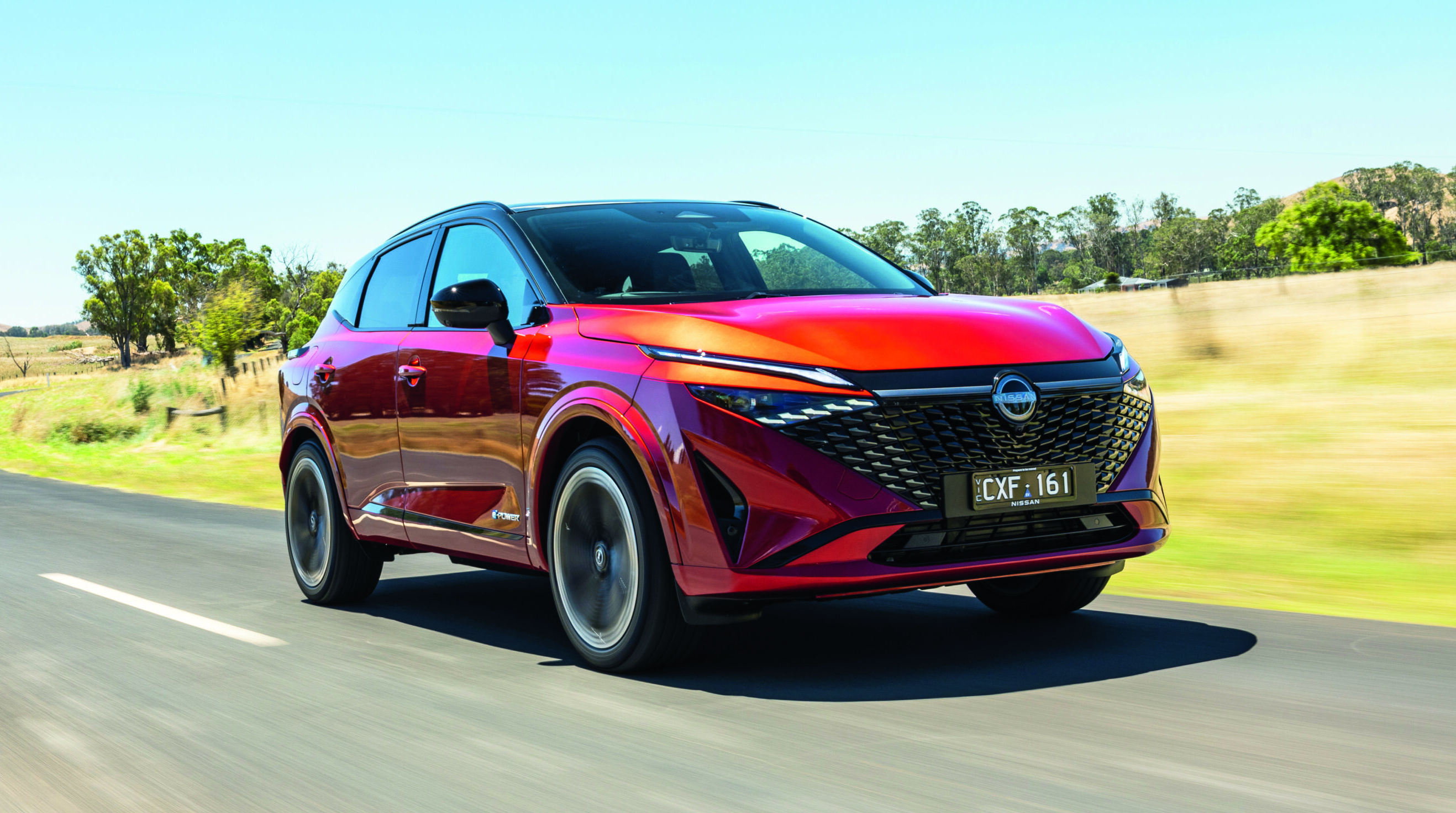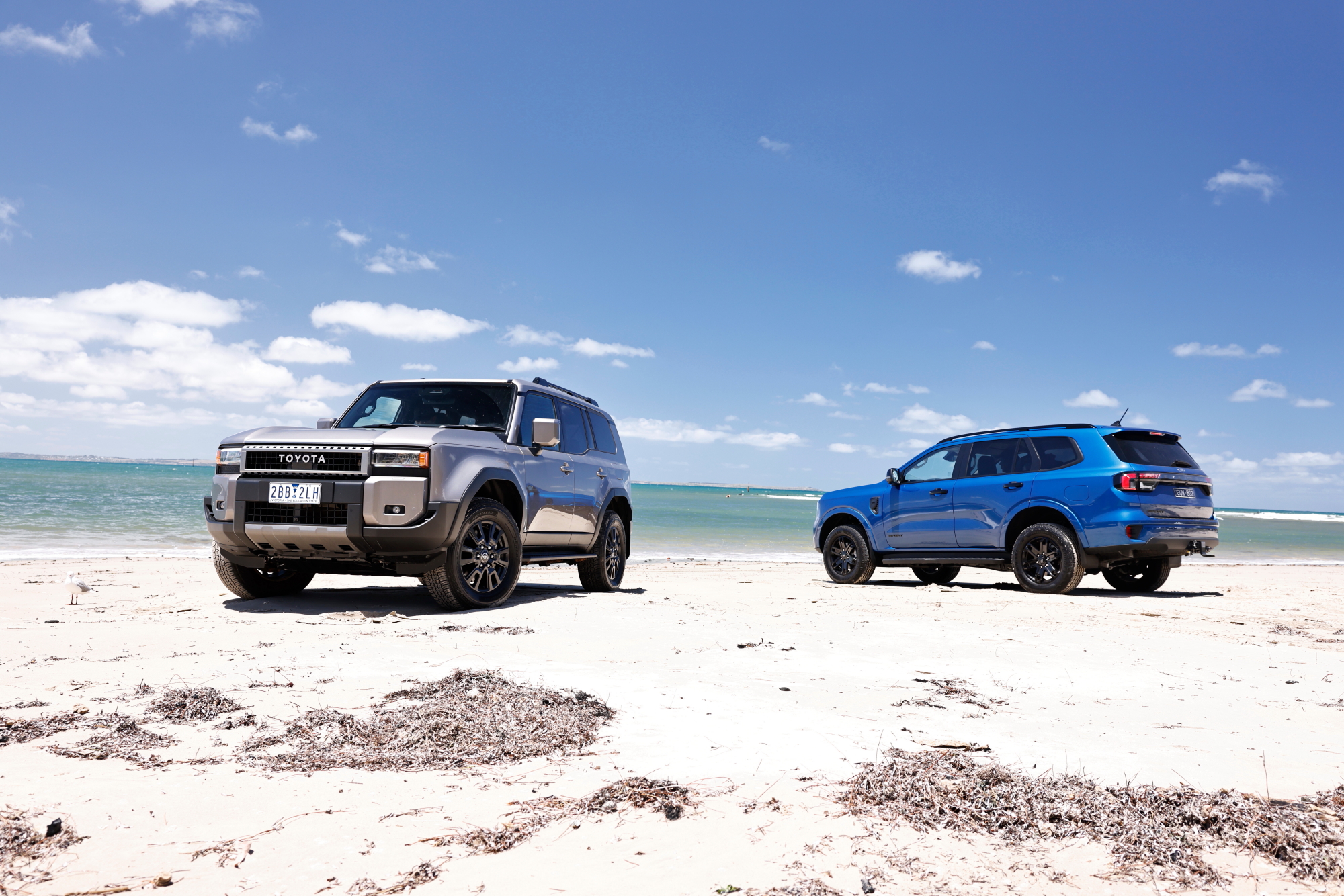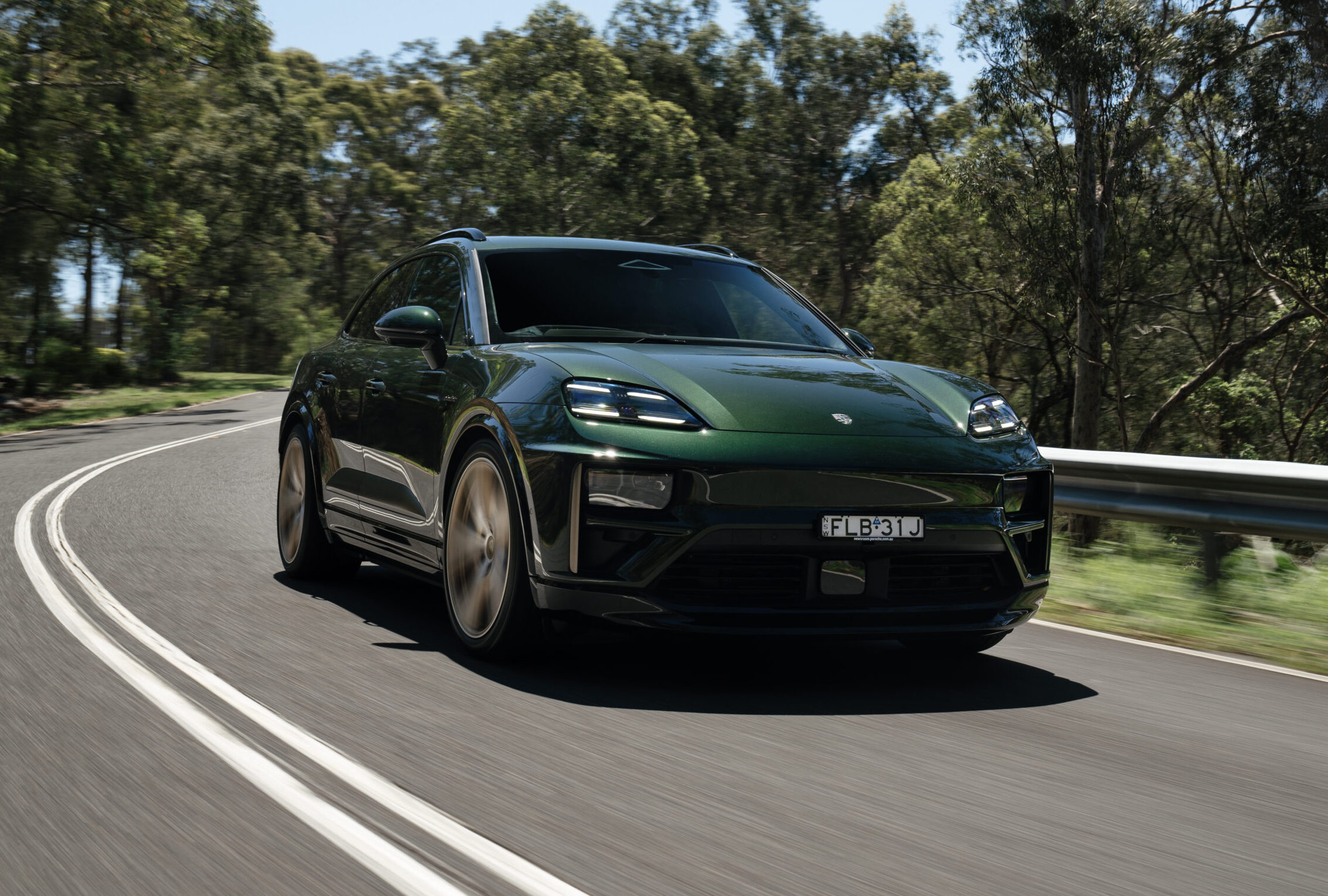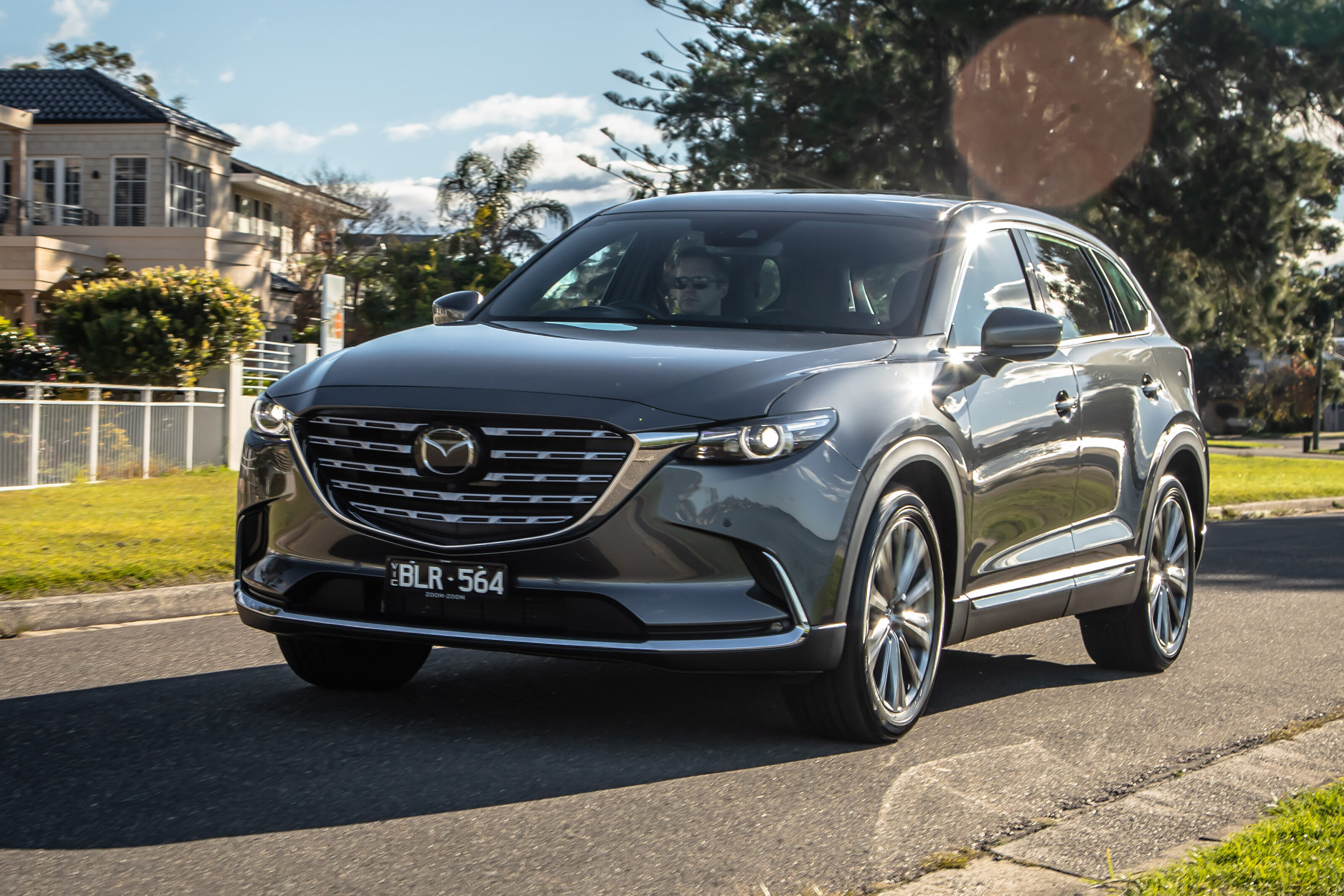
Score breakdown
Things we like
- Cool captain’s chairs
- Balanced chassis
- Interior comfort
- Reasonably priced premium paint
Not so much
- Short service intervals
- Lack of wireless CarPlay/Android Auto
- Lack of touchscreen is annoying
- Dark cabin if you don’t choose white leather
Mazda’s big seven-seater was a bit of a trailblazer when it arrived in its original form in 2006.
Packing a thirsty but powerful V6 wrapped in sleek looks that set it apart from the rest of the still-nascent segment, the Mazda CX-9 provided access to Euro-style SUV aesthetics without the prices.
With the emergence of its second generation in 2016, the V6 went and the four-cylinder 2.5-litre turbo arrived. But what really impressed me was just how pretty it was and how it still packed a lot of utility into fashionable threads.
A mid-life update delivered worthy technology improvements to the (still-dark) cabin as well as the LE option pack to the high-end Azami, pushing prices into the seventies while adding an initially curious but clever new configuration to the interior.
Pricing and Features
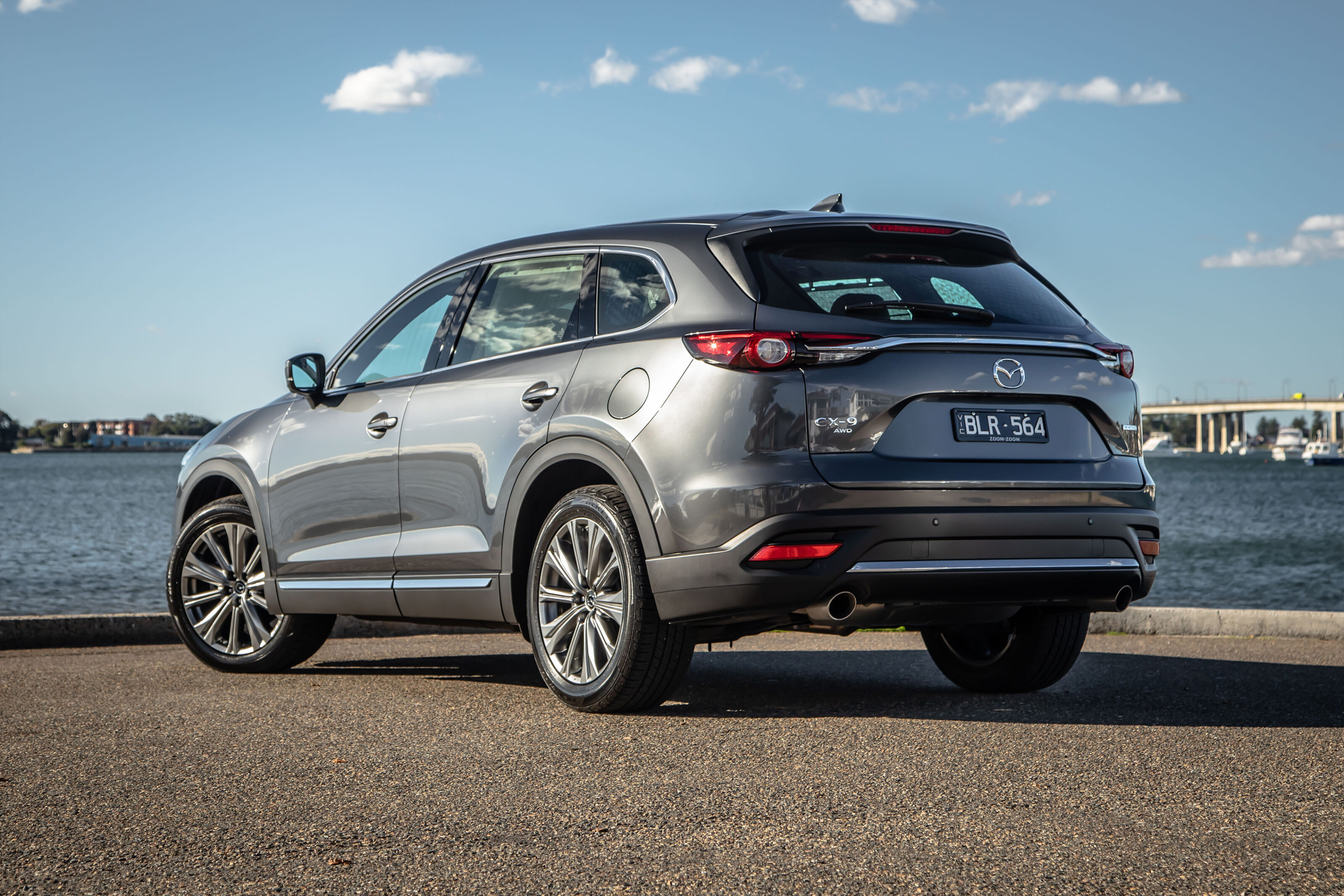
There is a bit of a journey on the top-tier Azami, so we’ll start without any boxes ticked.
Standard specification for the $66,190 (before on-roads) Azami gets you 20-inch alloys, multi-zone climate control, front, side and reversing cameras, keyless entry and start, powered tailgate, front and rear parking sensors, active cruise control, powered seats in the first two rows, head-up display, auto LED headlights, auto wipers, Nappa leather trim and wireless charging.
The three premium colours are all well worth the $495 extra but there is a wide choice of paint if you don’t want to pay the money, which is unusually generous. The darker ones look the best – Mazda’s Kodo design language is oddly colour-sensitive here in the five-metre club.
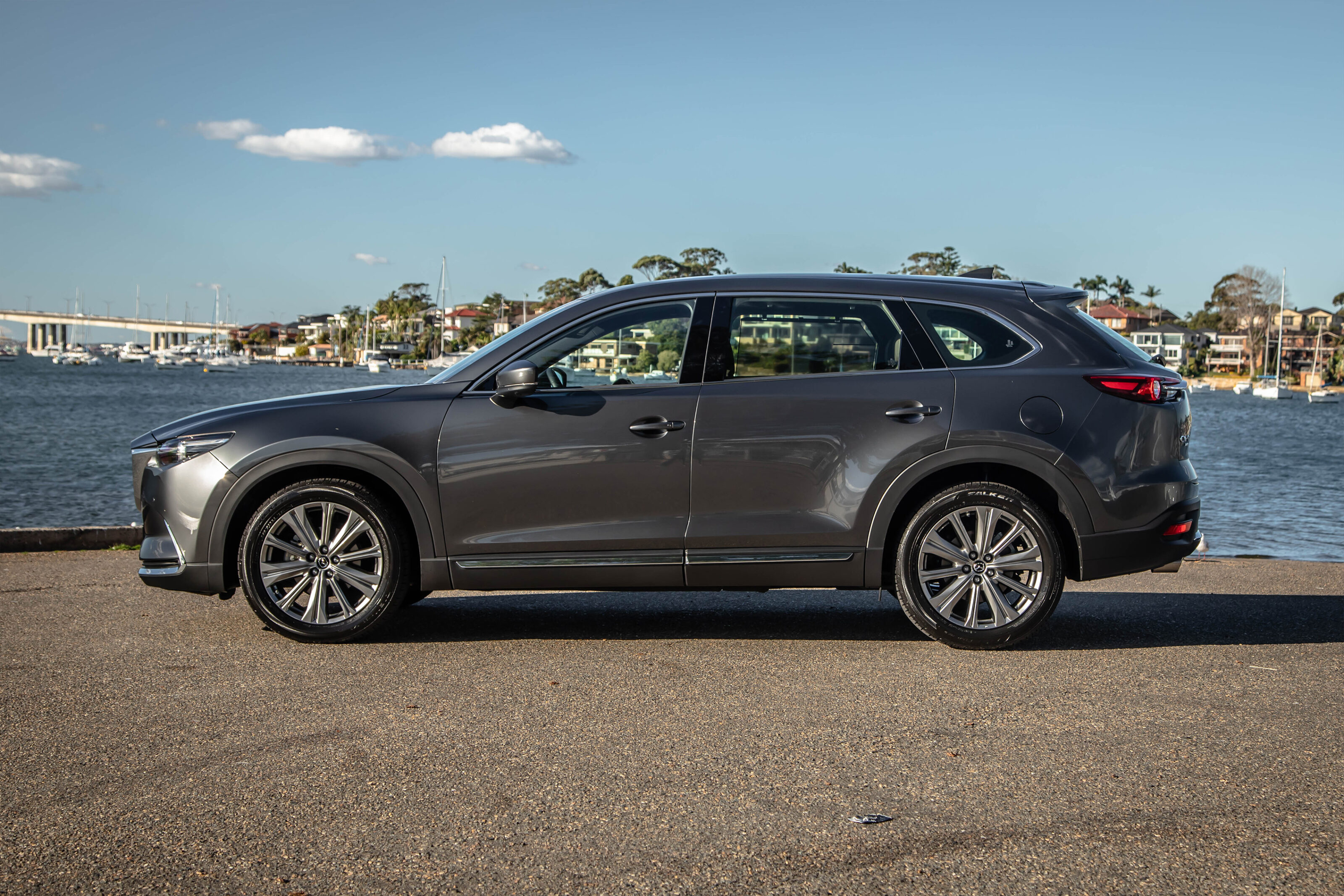
When you add all-wheel drive – a must for the CX-9, in my humble opinion – the price moves to $70,625. The LE option adds another $3250 but, heavens to Murgatroyd, removes a seat. When did Mazda go all Porsche on us?
But it’s not all bad. The fact is, the entire regular middle row goes out of the big, wide-opening rear doors and is replaced with two extremely comfortable captain’s chairs with heating and ventilation as well as a cut and paste of the front console with its armrest, storage bin and two cupholders.
The console doesn’t fold or flip – the seats move forward to allow access to the rear and unlike, say, the Palisade, the big Mazda does not have walkthrough access between the chairs because of the console arrangement.
The darker paint options look the best – Mazda’s Kodo design language is oddly colour-sensitive here in the five-metre club
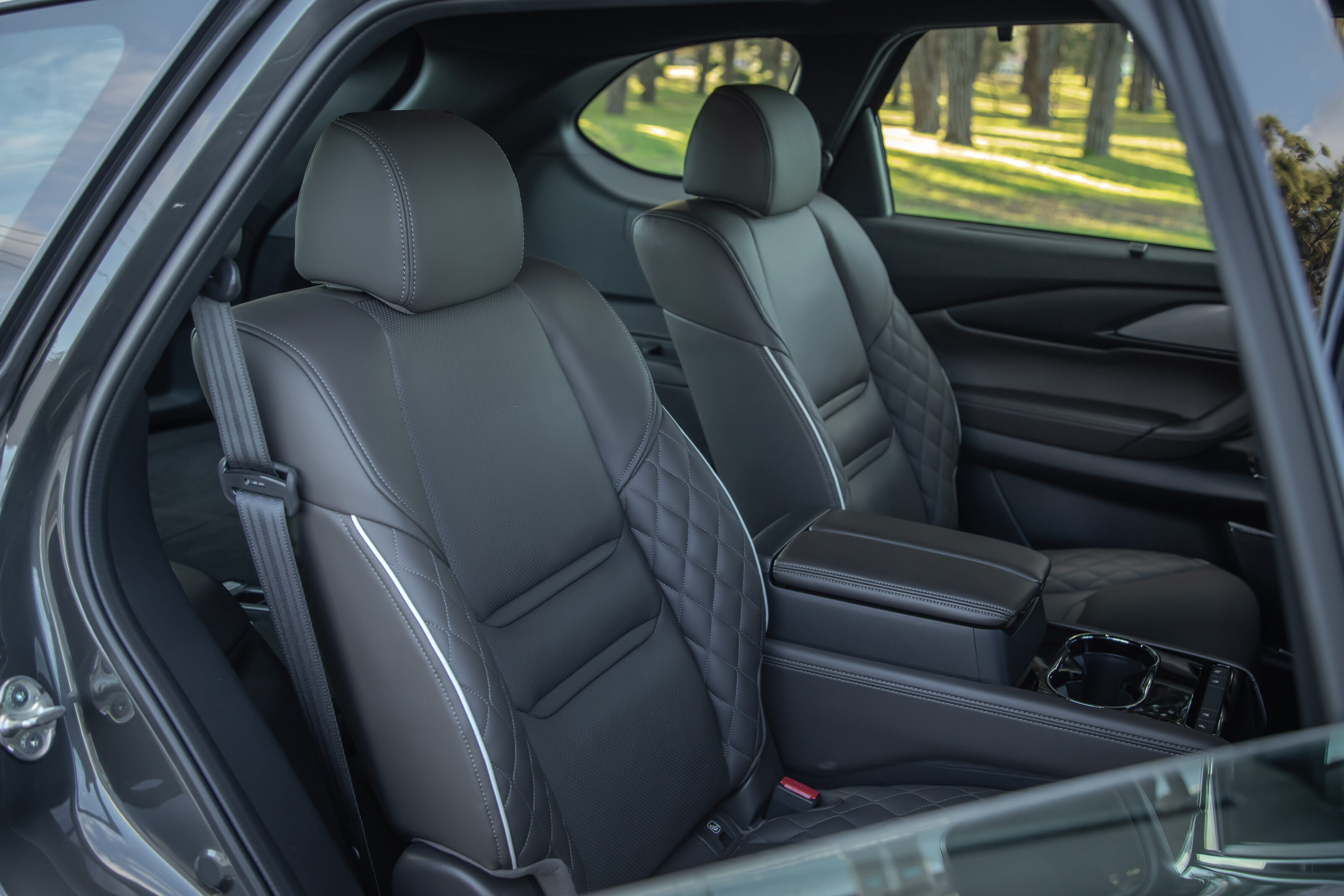
To help keep you safe, the CX-9 also has six airbags, ABS, stability and traction controls, front and rear AEB, lane-keep assist, blind-spot monitoring, rear cross-traffic alert, traffic sign recognition and a 360-degree around-view camera.
The forward AEB works between 4km/h and 80km/h and will recognise pedestrians at least during the day and in well-lit areas. And unlike its two main Korean rivals, the airbags reach all the way to the third row.
The LE scores four top-tether mounts (both rear rows) and two sets of ISOFIX points (second row). The CX-9 was awarded a five-star ANCAP safety rating in 2016, which is obviously some time ago now.
Comfort and Space
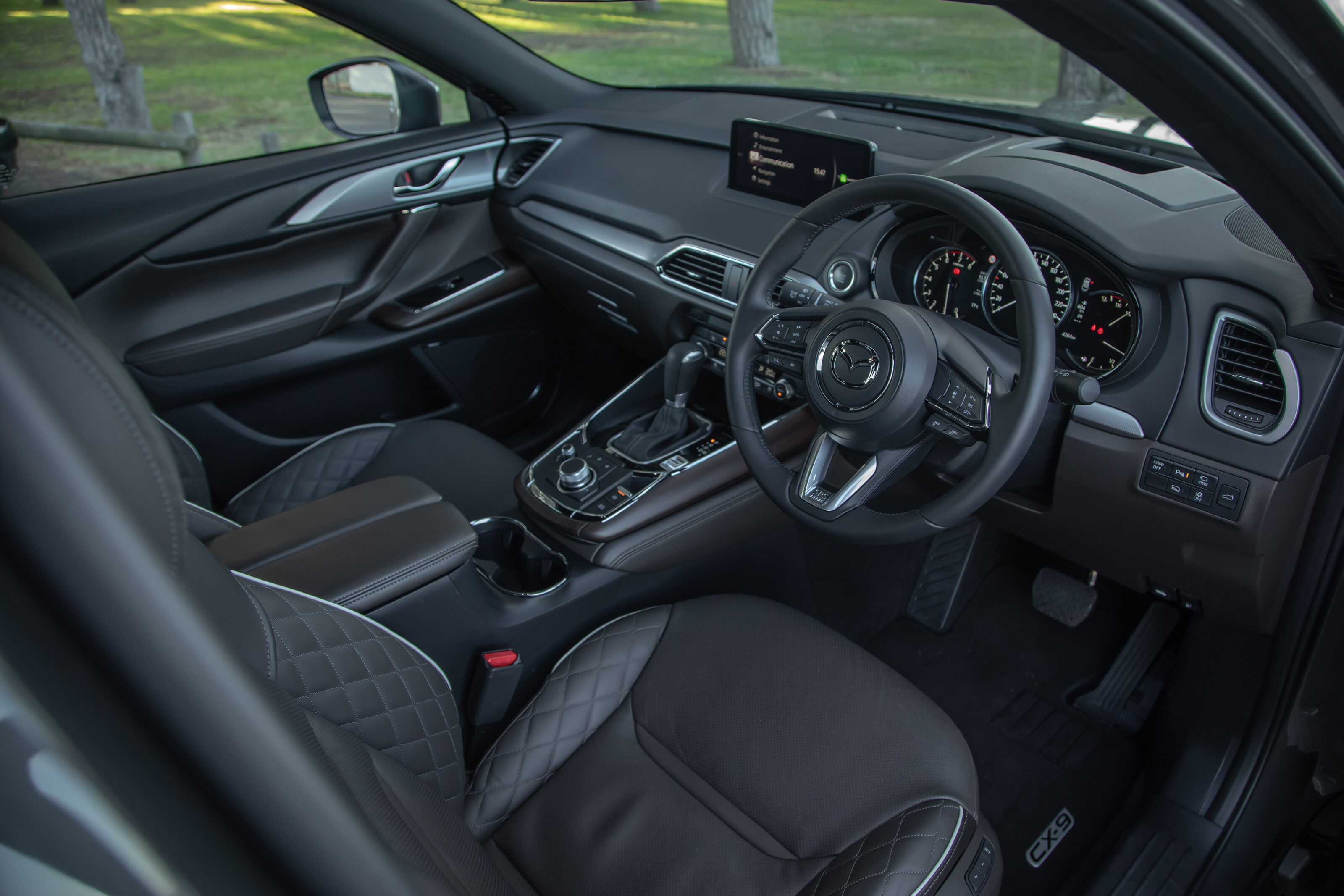
For the six-seater option, you lose the middle seat in the middle row. Normally that’s the worst seat in the house in a five-seater, but you also have the third row’s two seats which, as ever, are for occasional use.
The LE option means the two in the middle row can stretch out in heated and ventilated comfort, with a big armrest that includes cupholders. Elbow, head and legroom are palatial, especially if there’s nobody behind and you wind the seats all the way back.
An electrically operated dance gets the captain’s chairs out of the way, a process slower than a week in lockdown with your in-laws staying (no matter how nice they are). It does make climbing into the third row – with two more seats and cupholders – reasonably easy but it’s still tight back there.
Second-row occupants get their own set of air vents and third-row passengers get two USB-A ports, a shrewd move to keep devices charged and attention diverted from the claustrophobia.
One sacrifice in the LE is that in exchange for the captain’s chairs, you can’t get that ute-with-a-roof-and-carpet feeling you get in the standard car.
With the middle row fixed in place, you’re left with a maximum of “only” 810 litres. With the third row in place, you have access to 230 litres via the powered tailgate, which is about the same as a Mazda2, believe it or not.
On the Road
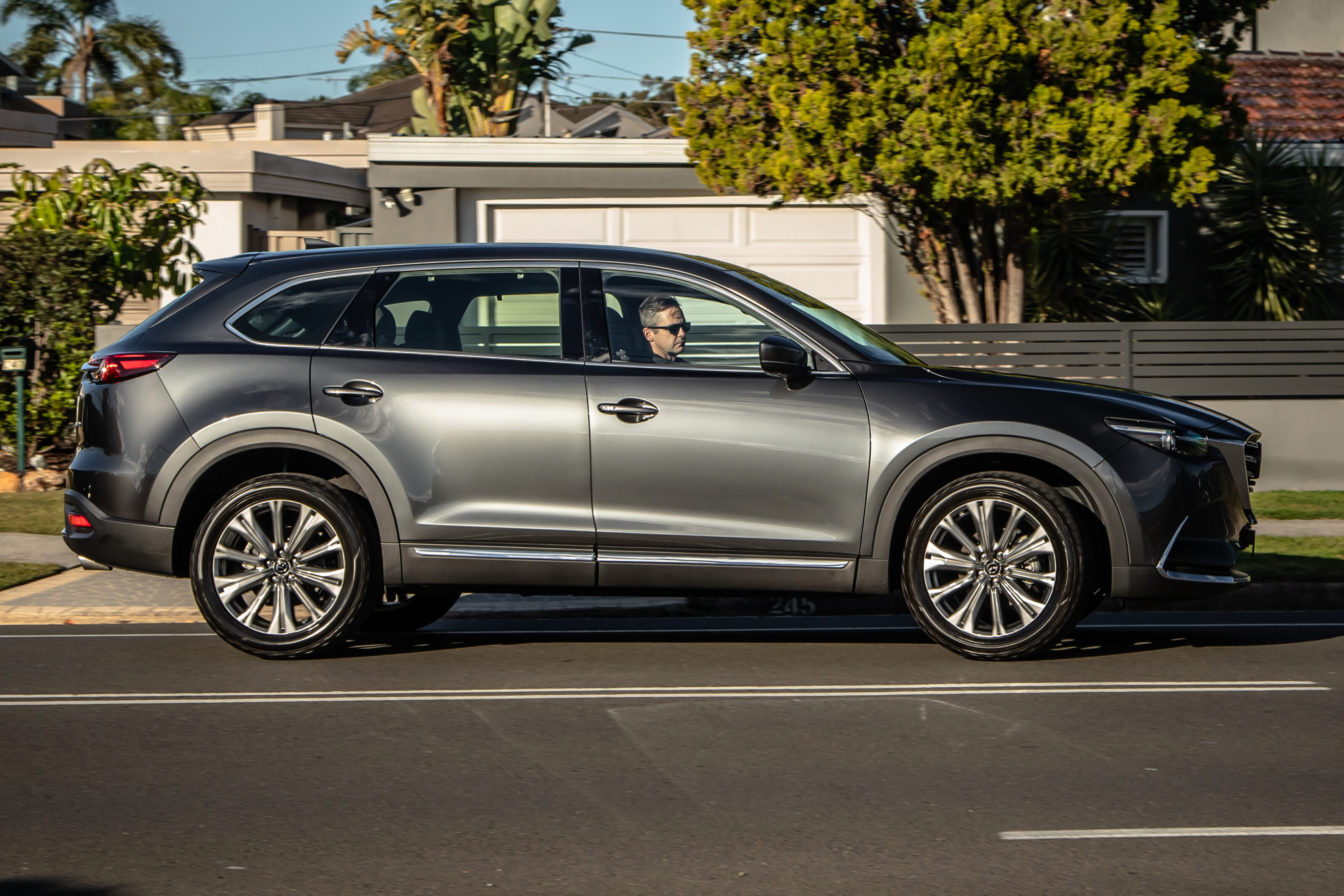
In the dry, the difference between driving a CX-9 with front-wheel drive and one with all-wheel drive is negligible. After all, the all-wheel drive is mostly disconnected in the dry because it’s not required unless you go a bit bananas. And there’s much to like about it, from the well-weighted steering to the very well-judged suspension setup.
The big difference between the two comes when things get a bit slippery. For plenty of drivers, it won’t matter.
When it’s wet or a bit loose, the right foot will be tempered by the various traction and stability systems. But for folks who care, the sound and feel of the fronts spinning up on mild throttle on corner exits or from a standstill will rapidly tire, especially during extended periods of rainy weather. Although I imagine almost nobody in a snow-prone area would want the hassle of fitting chains, especially to 20-inch wheels.
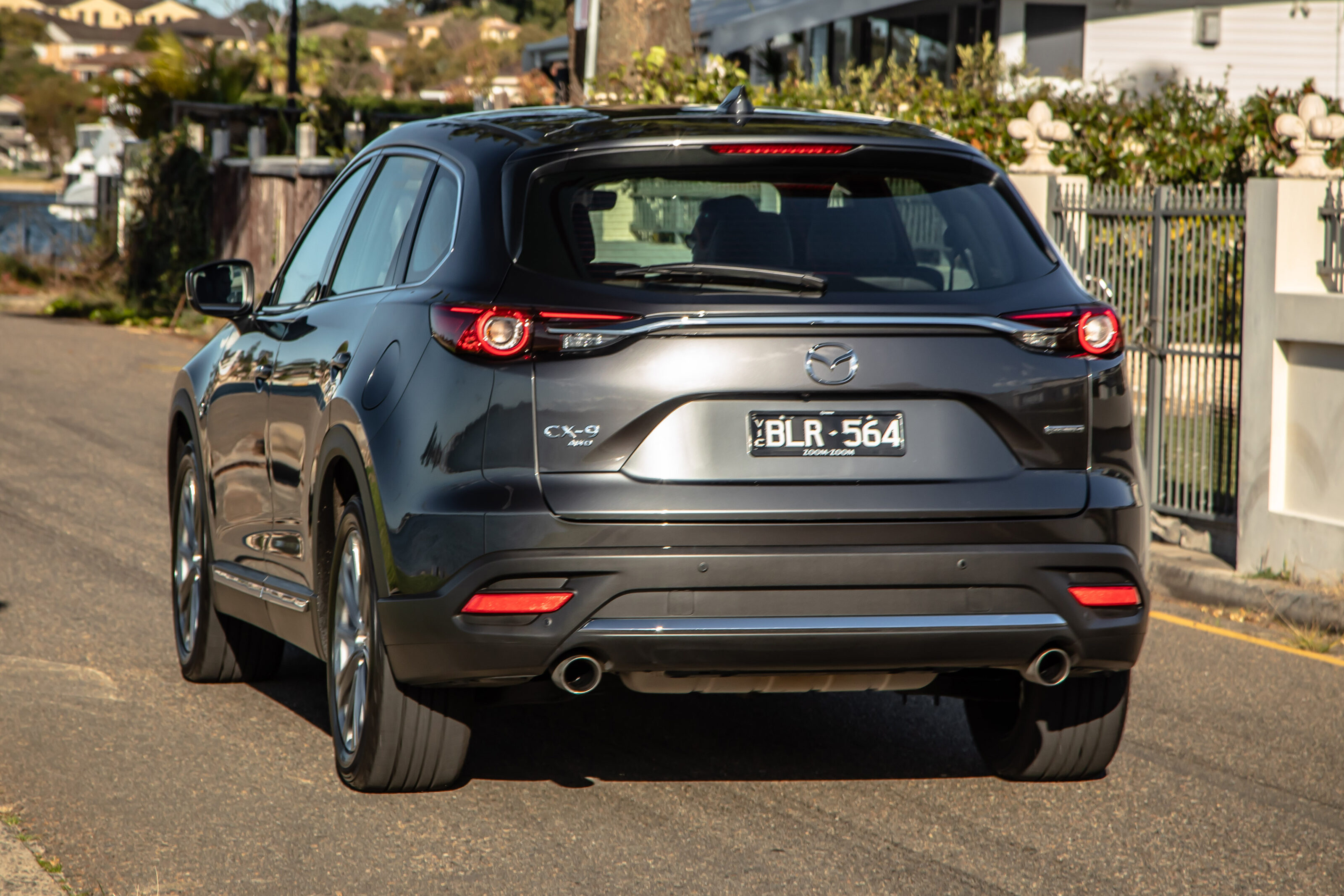
So I’m a big fan of the all-wheel-drive CX-9 because of the traction improvement in less than ideal conditions and an overall feeling of security.
The weight and fuel penalty aren’t much either because the system keeps the rear wheels out of the picture until they’re needed.
One of the reasons the front wheels scrabble is the demands placed upon them by the 2.5-litre turbo four under the bonnet. With 170kW and 420Nm (the latter at just 2000rpm), they’re diesel figures from a petrol engine.
The six-speed auto is looking short a gear or two, but works well with the engine and the CX-9’s two-tonne weight, with smooth shifts and a half-okay sport mode you’ll try once and never bother with again because there’s little point.
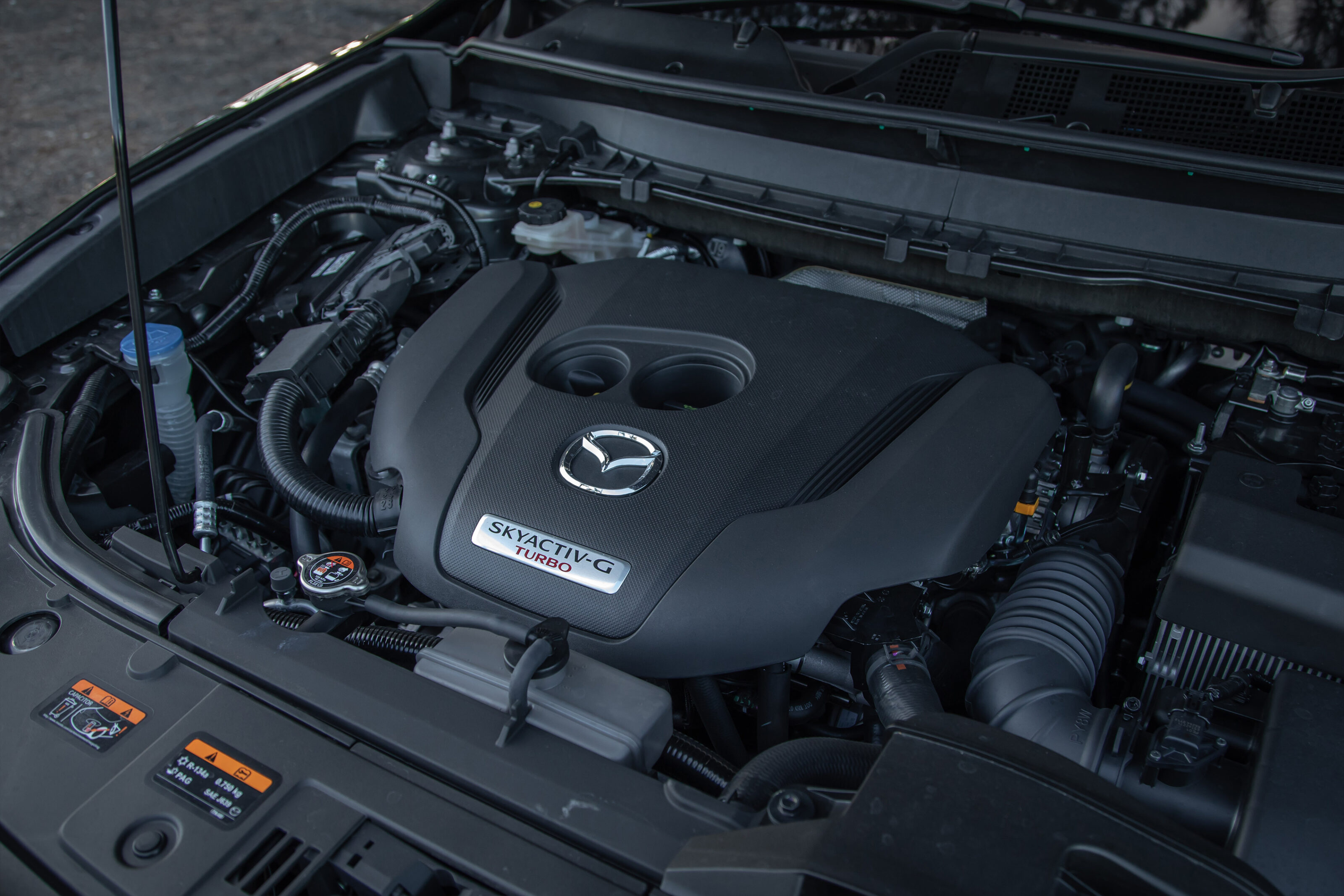
The CX-9’s overall agility is pretty impressive for such a big unit. At over five metres, it’s hardly a doddle to park or even find a parking space that fits it, but the quick steering means you’ll be in without too much arm-waving and twirling while the various cameras and endless beeping seem to work against each other until you’re used to what all the different noises mean.
It’s a fantastic long-distance cruiser. Comfortable, very quiet, it’s beautifully composed on the fast motorway – and the fuel consumption dives while you’re out there.
I spent a week behind the wheel, which included a run along various motorways to a top-secret destination for lunch (okay, Katoomba) and averaged 10.3L/100km, which is among the best figures I’ve seen in a CX-9 over the past four or five years. It’s certainly better than the infamous V6, which routinely sucked down twice that.
It’s a fantastic long-distance cruiser. Comfortable, very quiet, it’s beautifully composed on the fast motorway – and the fuel consumption dives while you’re out there.
Ownership
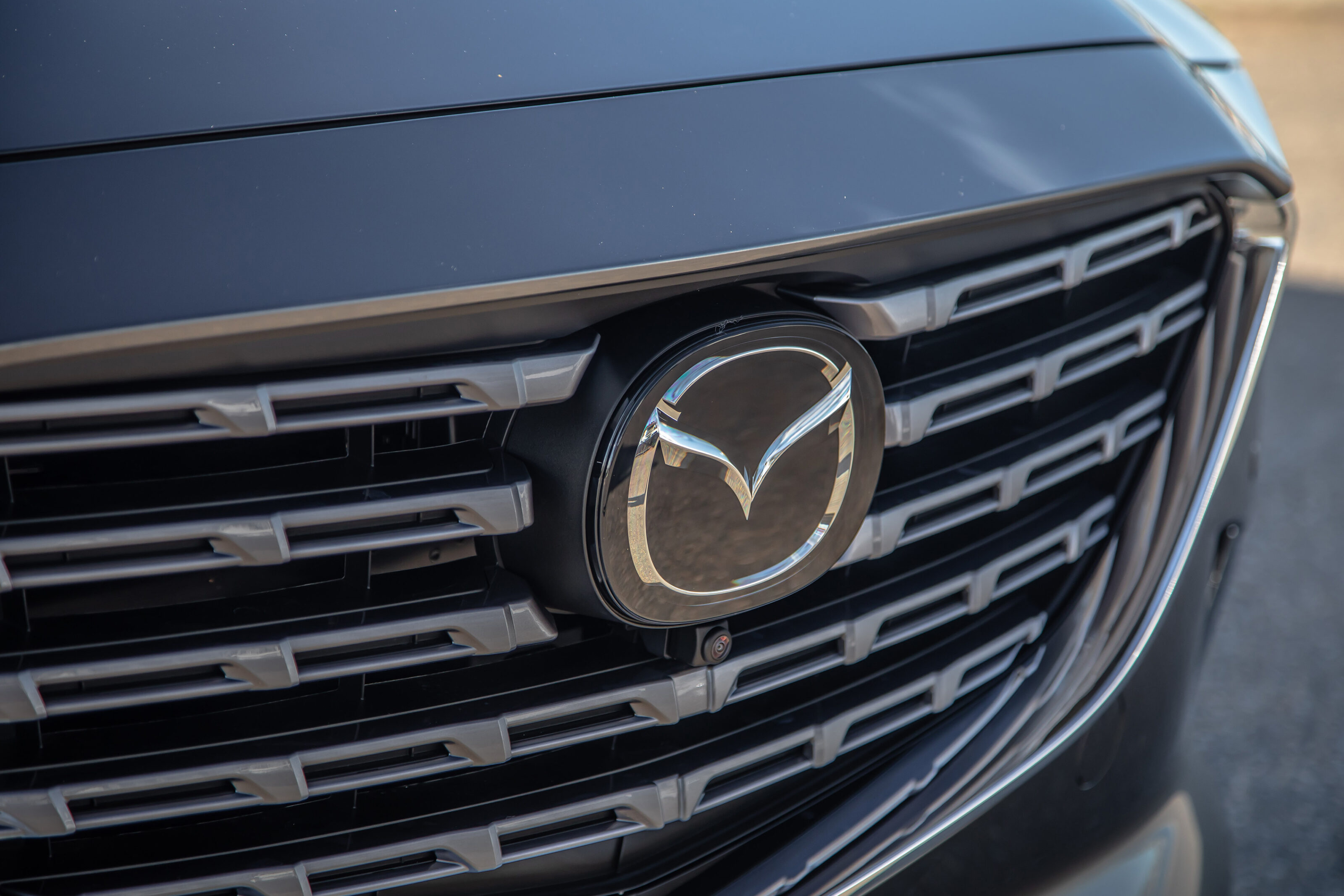
Mazda offers a five-year/unlimited kilometre warranty and roadside assist for the same period.
Service intervals come every 12 months or 10,000km. The short distance between services comes courtesy of the 2.5-litre turbo and is perhaps the least endearing thing about the ownership experience.
The first five services are capped at just over the $2000 mark, meaning you’ll pay about $400 per service. The Mazda website outlines what you’ll pay for extras like brake fluid that aren’t included in the cap, so at least you can tell what you’ll be up for.
As servicing goes, the pricing is fine and matches up well to its main rivals.
VERDICT
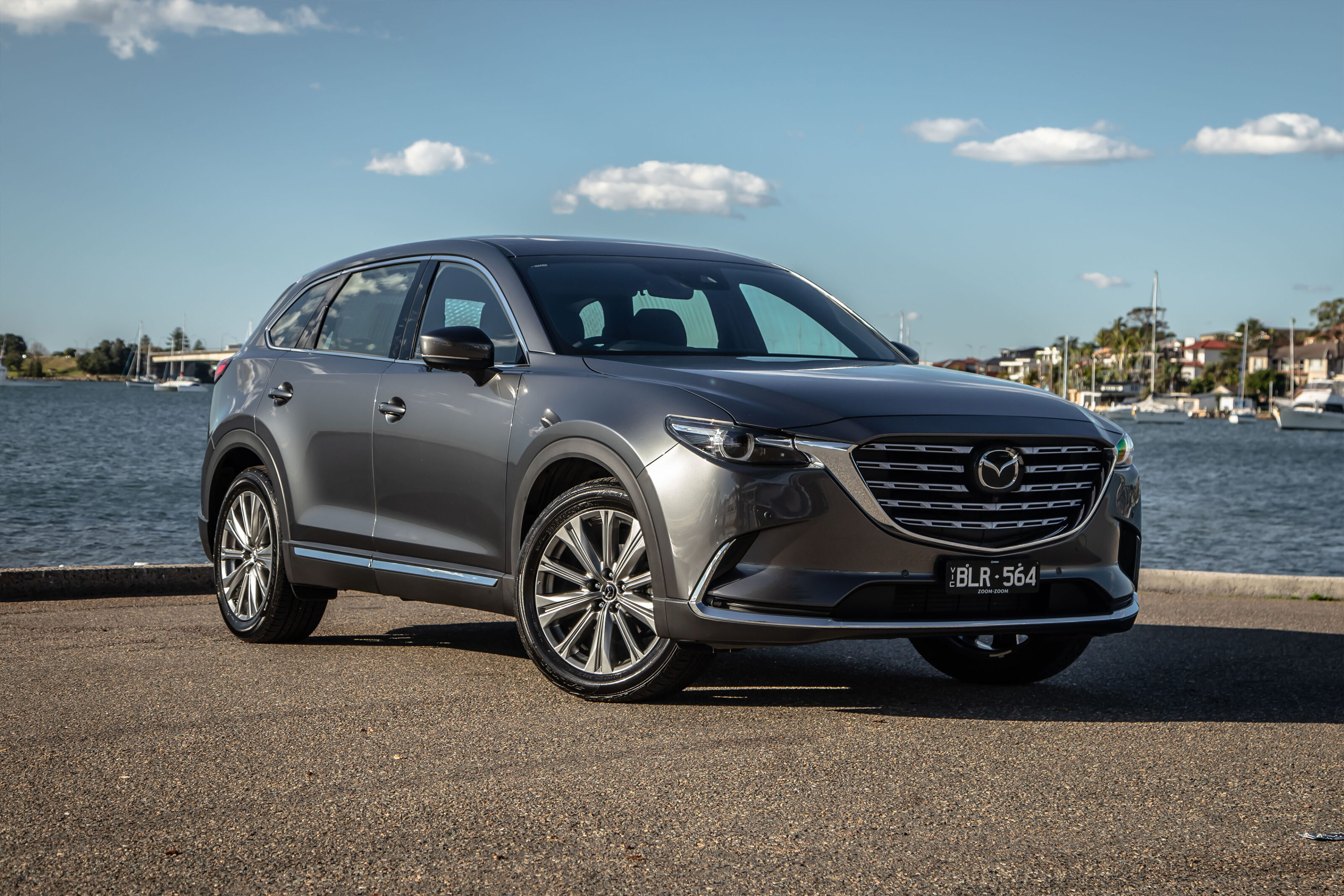
The CX-9 is weathering the storm rather well. It certainly helps that it still looks box-fresh nearly six years after its debut at the LA Motor Show.
Mazda’s quiet, careful and considered approach to yearly improvements – both gazetted and silent – has worked all up and down the range.
The addition of the LE version, with its luxury-focused middle row, is a bit of a masterstroke because it not only sets it apart from the Santa Fe and Sorento with which it is supposed to punch on with but also throws in the mix with the larger Hyundai Palisade with which it shares a $70k-plus price tag. That’s pretty clever when you think about it.
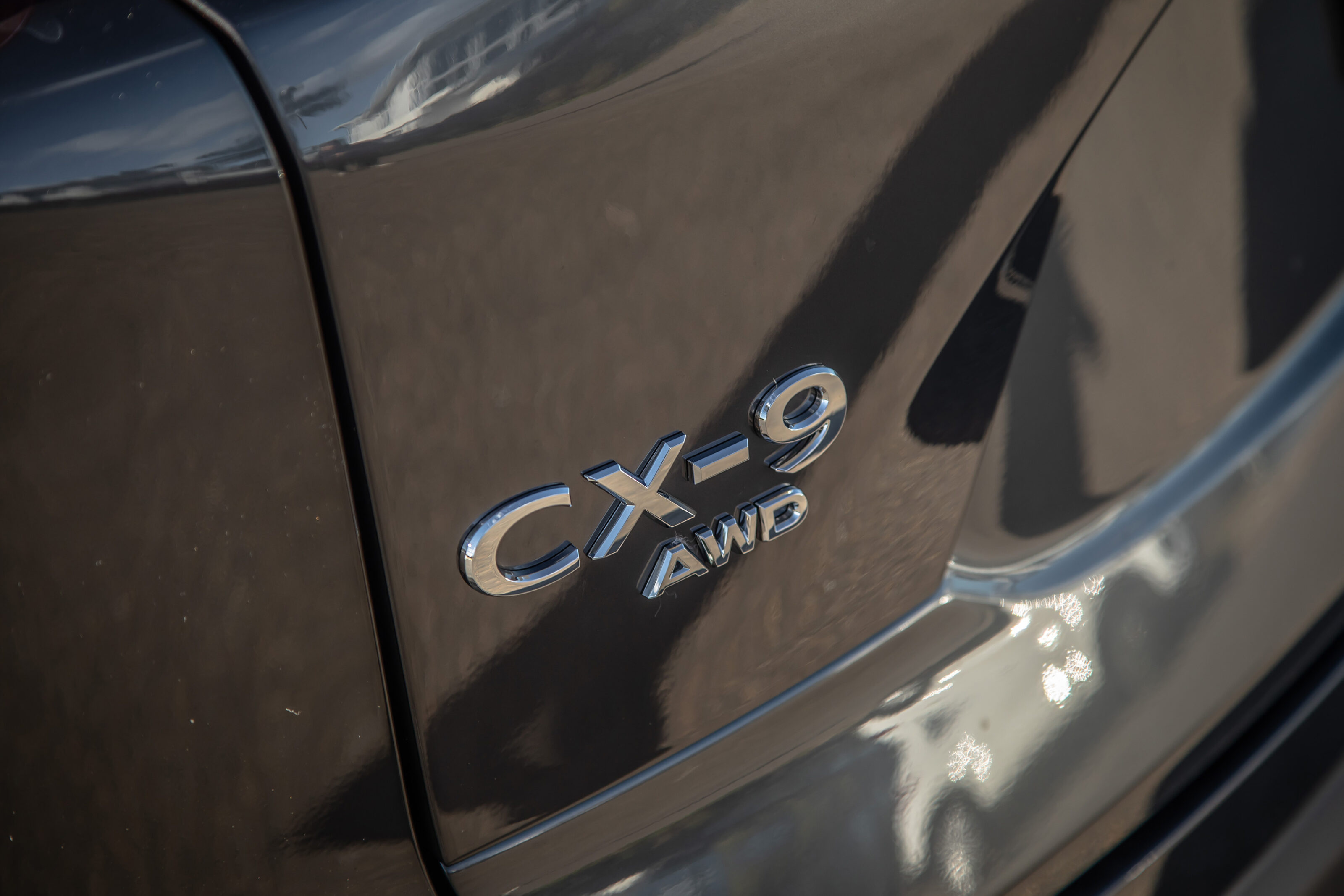
2021 Mazda CX-9 Azami LE specifications
| Body: | Five-door large SUV |
|---|---|
| Drive: | All-wheel drive |
| Engine: | 2.5-litre four-cylinder turbo petrol |
| Transmission: | six-speed automatic |
| Power: | 170kW @ 5000rpm |
| Torque: | 420Nm @ 2000rpm |
| Bore stroke: | 89mm x 100mm |
| Compression ratio: | 10.5 : 1.0 |
| 0-100km/h: | 7.9 sec (estimate) |
| Fuel consumption: | 9.0L/100km (combined) |
| Weight: | 2010kg |
| Suspension: | MacPherson strut (front); multi-link (rear) |
| L/W/H: | 5075/1969/1747mm |
| Wheelbase: | 2930mm |
| Brakes: | 320mm ventilated disc (front); 325mm solid disc (rear) |
| Tyres: | 255/50 R20 |
| Wheels: | 20-inch alloy wheels (17-inch space-saver spare) |
| Price: | $73,875+ ORC |
Score breakdown
Things we like
- Cool captain’s chairs
- Balanced chassis
- Interior comfort
- Reasonably priced premium paint
Not so much
- Short service intervals
- Lack of wireless CarPlay/Android Auto
- Lack of touchscreen is annoying
- Dark cabin if you don’t choose white leather
We recommend
-
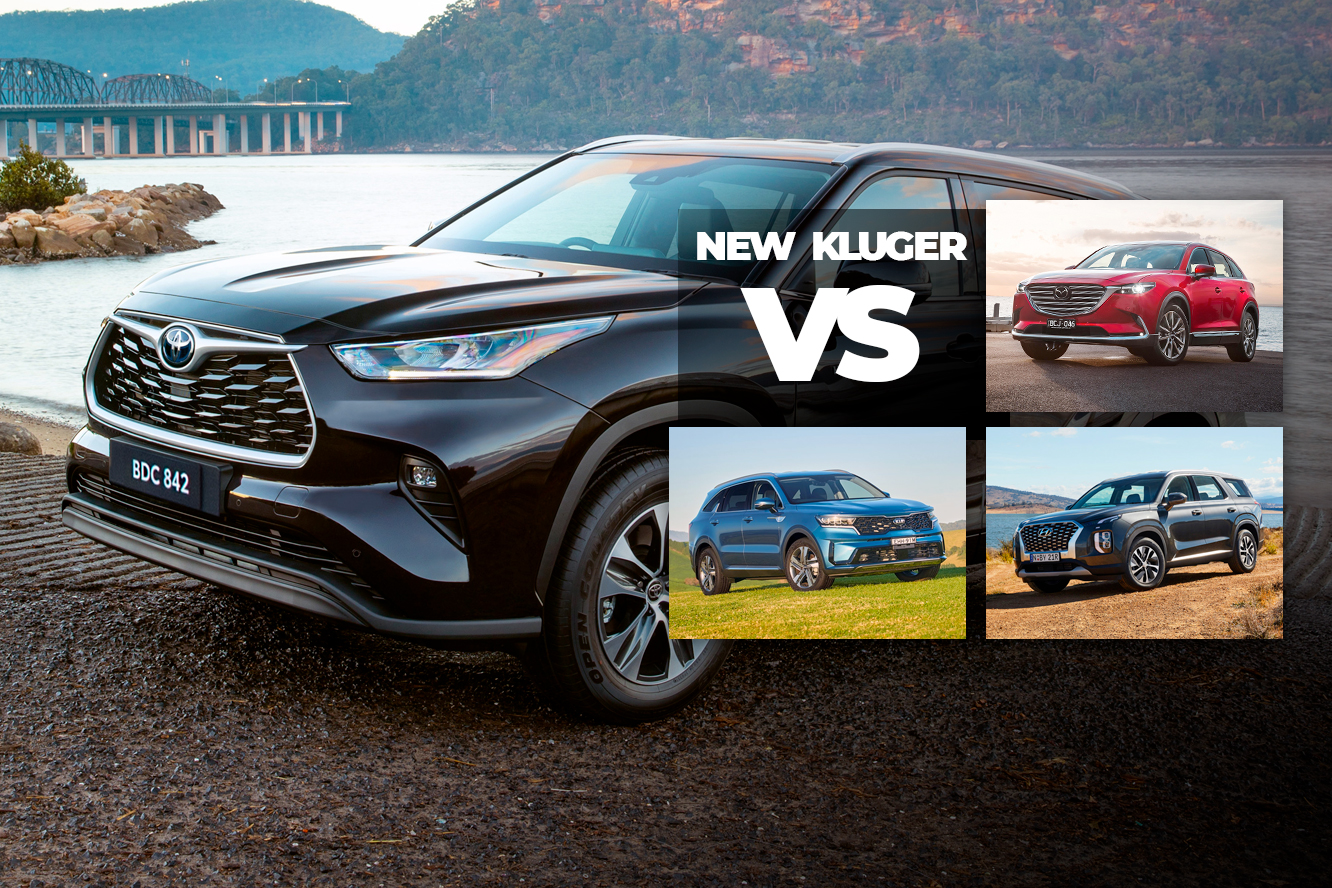 Comparisons
ComparisonsNew Toyota Kluger vs Kia Sorento vs Mazda CX-9 vs Hyundai Palisade: Spec comparison
The new Toyota Kluger is here, with a hybrid option for the first time. But how does it compare with key seven-seat SUV rivals for pricing, practicality, technology, safety, performance and fuel economy? Before we can drive them all together, here's how they line up.
-
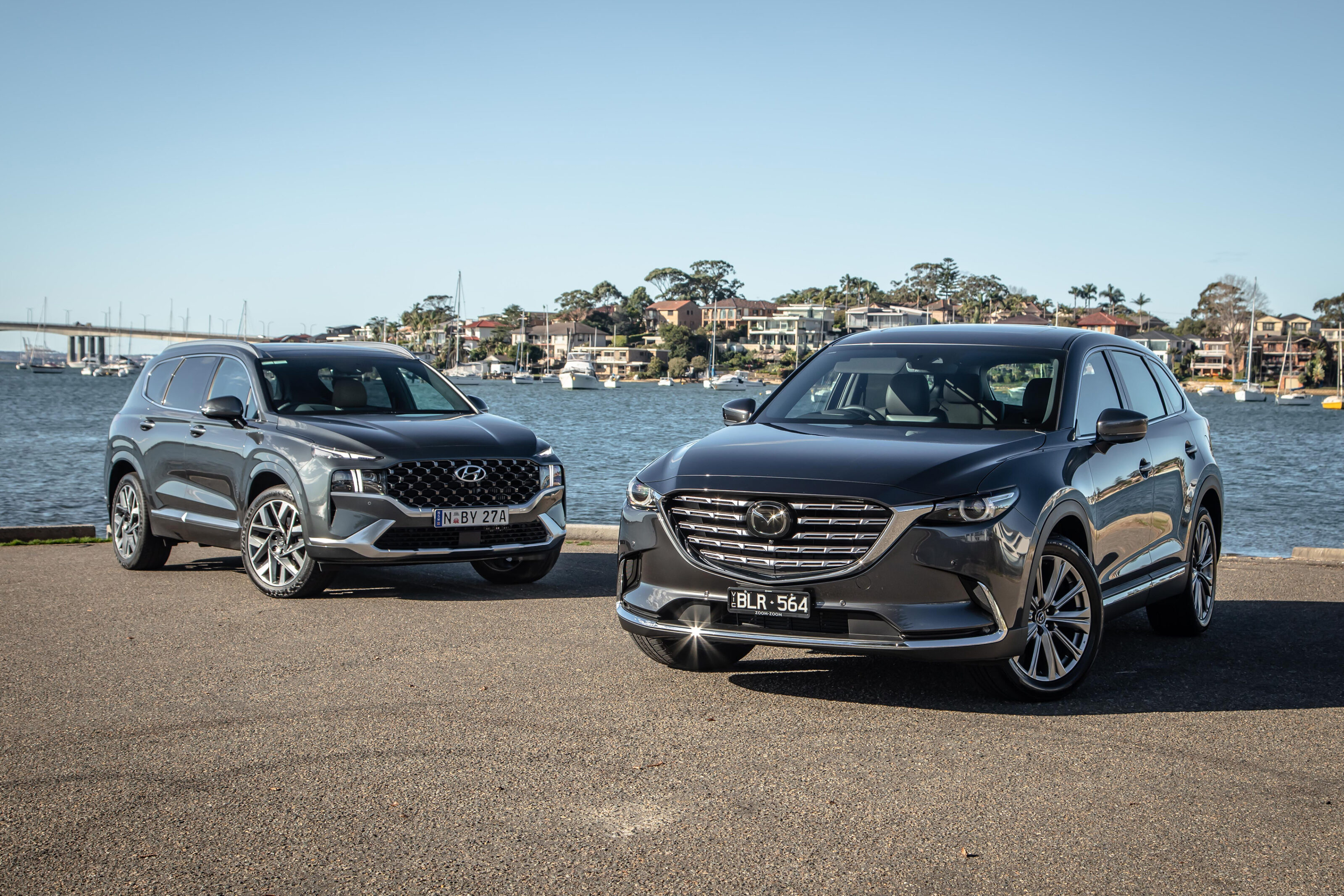 Comparisons
Comparisons2021 Hyundai Santa Fe vs Mazda CX-9 comparison
Two big contenders, one with a clever interior option, both in different shades of grey. This is a close one, folks.
-
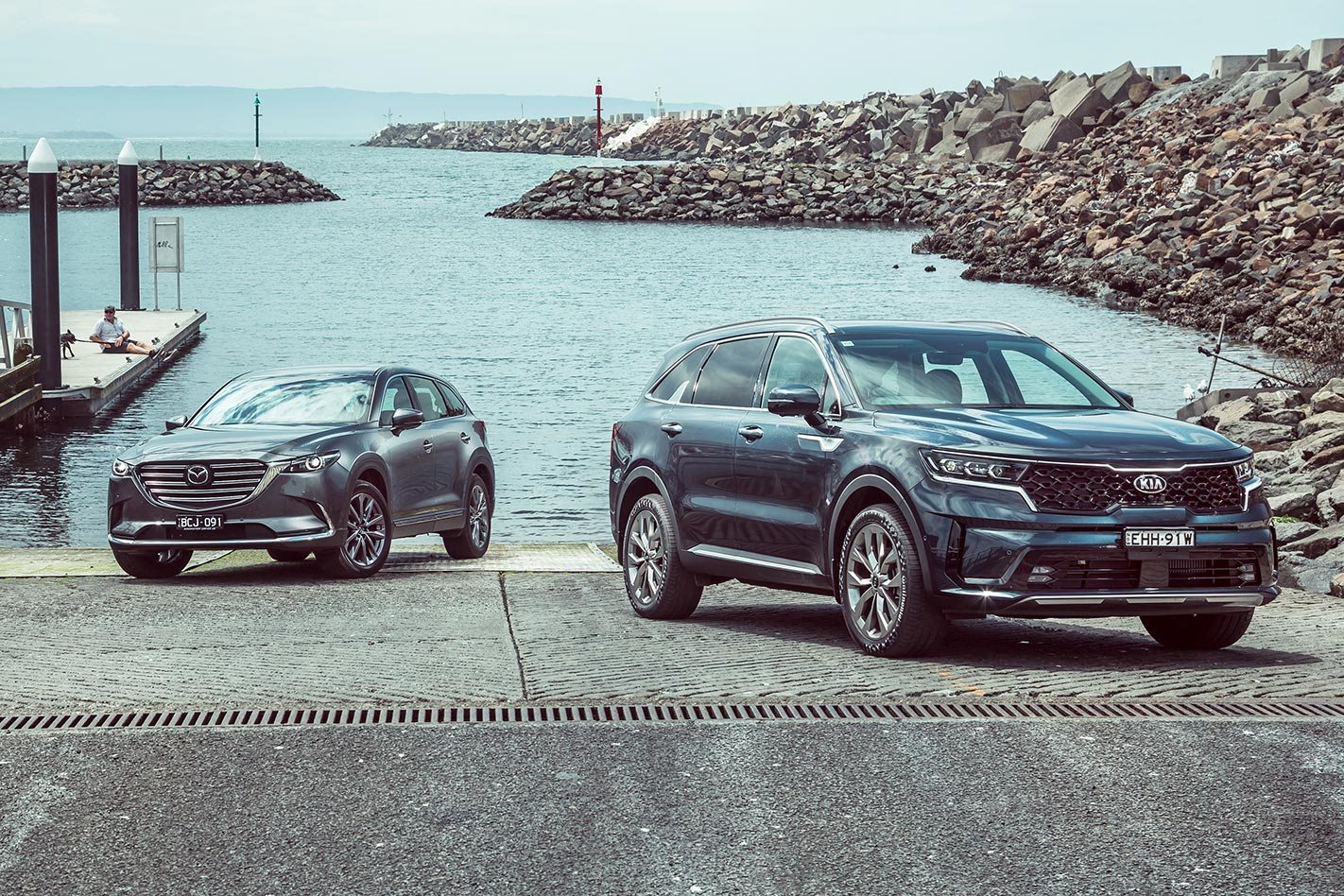 Comparisons
ComparisonsKia Sorento vs Mazda CX-9: Seven-seater SUV comparison
Which of this pair is best suited to take you and your crew on a terrestrial exploration?
-
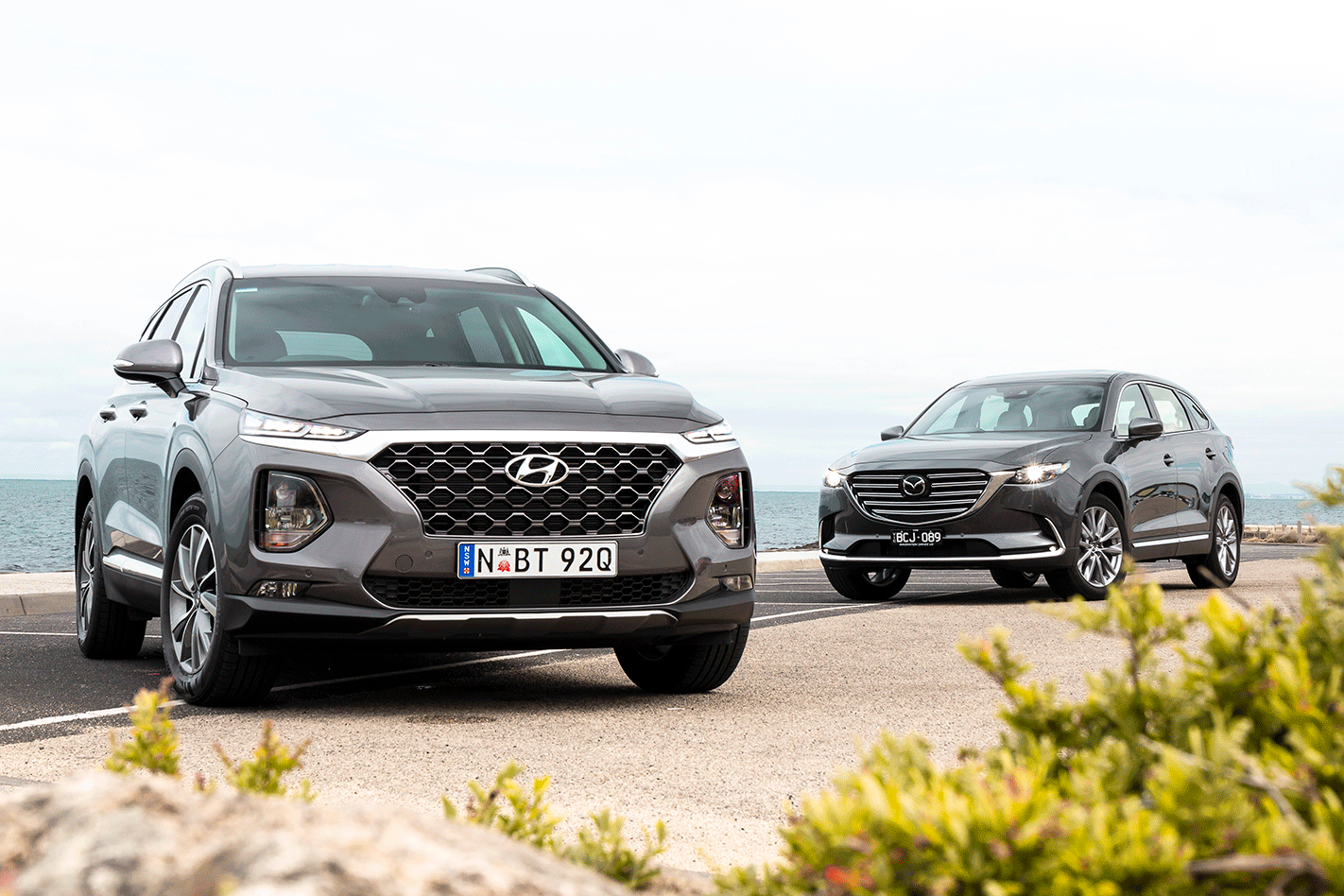 Comparisons
ComparisonsWhich of these seven-seat SUVs is best?
Hyundai has added a grunty V6 to take on the Wheels COTY-winning Mazda CX-9

